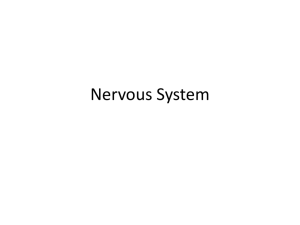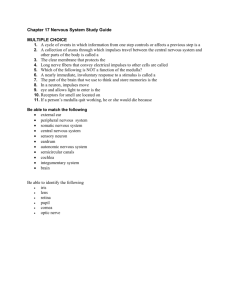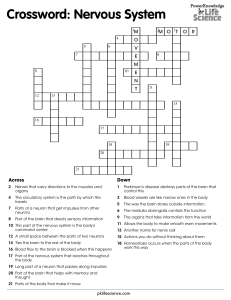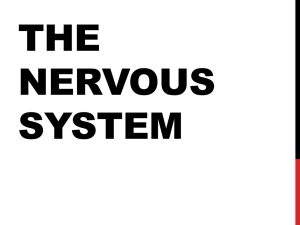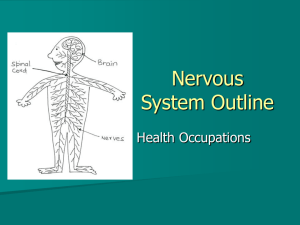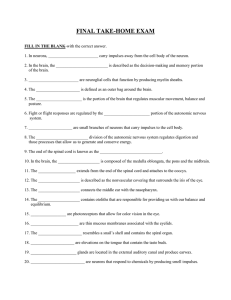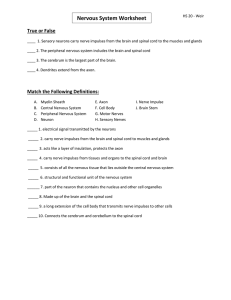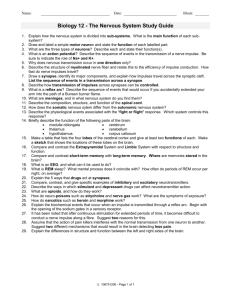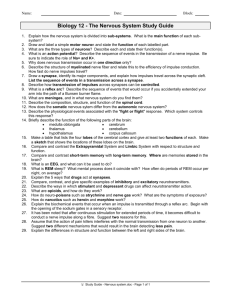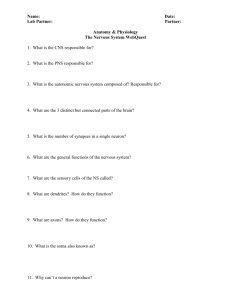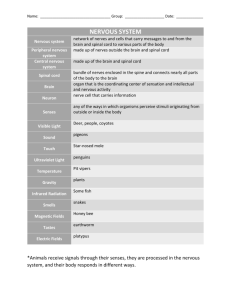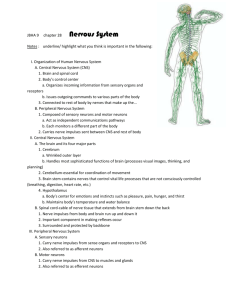Definitions of key words Eye- the organ of sight. Ear
advertisement
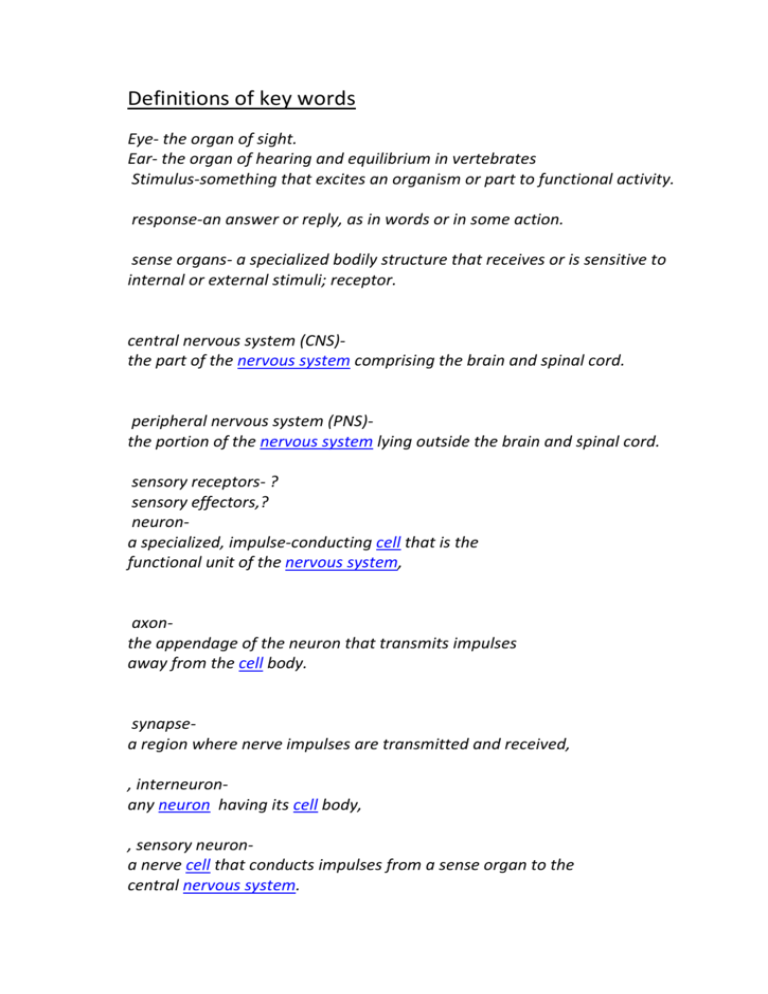
Definitions of key words Eye- the organ of sight. Ear- the organ of hearing and equilibrium in vertebrates Stimulus-something that excites an organism or part to functional activity. response-an answer or reply, as in words or in some action. sense organs- a specialized bodily structure that receives or is sensitive to internal or external stimuli; receptor. central nervous system (CNS)the part of the nervous system comprising the brain and spinal cord. peripheral nervous system (PNS)the portion of the nervous system lying outside the brain and spinal cord. sensory receptors- ? sensory effectors,? neurona specialized, impulse-conducting cell that is the functional unit of the nervous system, axonthe appendage of the neuron that transmits impulses away from the cell body. synapsea region where nerve impulses are transmitted and received, , interneuronany neuron having its cell body, , sensory neurona nerve cell that conducts impulses from a sense organ to the central nervous system. motor neuronsa nerve cell that conducts impulses to a muscle, gland, or other effector. nerveone or more bundles of fibers forming part of a system that conveys impulses of sensation, motion, etc., reflex arcthe nerve pathways followed by an impulse during a reflex. cerebrumthe anterior and largest part of the brain, consisting of two halves or hemispheres and serving to control voluntary movements and coordinate mental actions. cerebelluma large portion of the brain, serving to coordinate voluntary movements, posture, and balance in humans, brain stemthe portion of the brain that is continuous with the spinal cord and comprises the medulla oblongata, pons, midbrain, and parts of meth hypothalamus, corpus callosum? homeostasisa state of psychological equilibrium obtained when tension or a drive has been reduced or eliminated. hormonesa synthetic substance used in medicine to act like such a compound when introduced into the body. endocrine gland- any of various glands, as the thyroid, adrenal, and pituitary glands, that secrete certain substances or hormones directly into the blood. coordinationthe act or state of coordinating or of being coordinated. involuntary actionsnot voluntary; independent of one's will; not by one's ownchoice: pituitary glanda small, somewhat cherry-shaped double structure attached by as talk to the base of the brain and constituting the master endocrine gland affecting all hormonal functions in the body, adrenal glandone of a pair of ductless glands, located above the kidneys, thyroidof or pertaining to the largest cartilage of the larynx, forming the projection known in humans as the Adam's apple. hypothalamusa region of the brain, between the thalamus and the midbrain, that functions as the main control center for the autonomicnervous system pancreasa gland, situated near the stomach, that secretes a digestive fluid into the intestine through one or more ducts and also secretes the hormone insulin. insulina polypeptide hormone, produced by the beta cells of the islets of Langerhans of the pancreas, that regulates the metabolism of glucose and other nutrients. oestrogenany of several steroid hormones, that are secreted chiefly by the ovaries and placenta, that induce estrus, stimulate changes in the female reproductive organs during the estrous cycle, and promote development of female secondary sexual characteristics testosteronethe sex hormone, C 19 H 28 O 2 , secreted by the testes, that stimulates the development of male sex organs, secondary sexual traits, and sperm.
